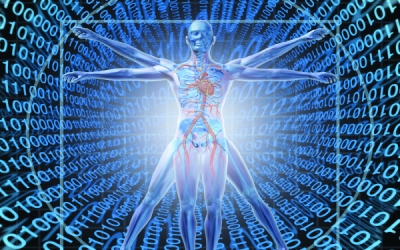- Latest news▼
-
15:11, April 24 Zombie deer disease possibly linked to hunters’ deaths

-
12:27, April 23 Appetite: Scientists found out the secret to the appeal of large portions of fast food

-
10:33, April 23 Scientists test new approach to fighting viruses

-
08:38, April 23 Ketamine may help with postpartum depression

-
22:12, April 22 Unhealthy amount of sugar found in baby food products of a well-known brand

-
19:41, April 22 Air pollution puts health of more than 1.6 billion workers globally at risk

-
17:25, April 22 Scientists found baked goods and lack of sleep to be more dangerous than alcohol

-
16:02, April 22 342 cases of measles recorded in Armenia so far in 2024

-
15:29, April 22 BrainStimulation: electrical brain stimulation alleviates anxiety and depression in the elderly

-
08:27, April 22 Cognitively stimulating jobs in midlife could lower dementia risk in old age, study finds

-
20:37, April 21 Environmental Health Perspectives: Microplastics ingested with food and water can spread from the gut to the brain

-
22:41, April 20 Scientists develop new method to safely stimulate immune cells to fight cancer

-
20:46, April 20 Blood test can determine who is at risk of developing multiple sclerosis - scientists

-
18:36, April 20 Next pandemic likely to be triggered by flu - scientists

-
12:16, April 19 Scientists grow human mini-lungs in lab

All materials
Google's new moonshot project: the human body

Google Inc. has embarked on what may be its most ambitious and difficult science project ever: a quest inside the human body.
Called Baseline Study, the project will collect anonymous genetic and molecular information from 175 people—and later thousands more—to create what the company hopes will be the fullest picture of what a healthy human being should be, The Wall Street Journal reports.
The early-stage project is run by Andrew Conrad, a 50-year-old molecular biologist who pioneered cheap, high-volume tests for HIV in blood-plasma donations.
Dr. Conrad joined Google X—the company's research arm—in March 2013, and he has built a team of about 70-to-100 experts from fields including physiology, biochemistry, optics, imaging and molecular biology.
Other mass medical and genomics studies exist. But Baseline will amass a much larger and broader set of new data. The hope is that this will help researchers detect killers such as heart disease and cancer far earlier, pushing medicine more toward prevention rather than the treatment of illness.
The project won't be restricted to specific diseases, and it will collect hundreds of different samples using a wide variety of new diagnostic tools. Then Google will use its massive computing power to find patterns, or "biomarkers," buried in the information. The hope is that these biomarkers can be used by medical researchers to detect any disease a lot earlier.
The study may, for instance, reveal a biomarker that helps some people break down fatty foods efficiently, helping them live a long time without high cholesterol and heart disease. Others may lack this trait and succumb to early heart attacks. Once Baseline has identified the biomarker, researchers could check if other people lack it and help them modify their behavior or develop a new treatment to help them break down fatty foods better, Dr. Conrad said.
Google said the information from Baseline will be anonymous and its use will be limited to medical and health purposes. Data won't be shared with insurance companies, the company added.
Once the data has been made anonymous, Google and other researchers will get access to it, the company said.
The information will include participants' entire genomes, their parents' genetic history as well as information on how they metabolize food, nutrients and drugs, how fast their hearts beat under stress and how chemical reactions change the behavior of their genes.
Meanwhile, the Google X Life Sciences group is developing more wearable devices that may continuously collect other data, such as heart rates, heart rhythms and oxygen levels. These devices will be worn by Baseline participants, according to Robert Califf, vice chancellor at Duke University's School of Medicine, who is working on the study.
Follow NEWS.am Medicine on Facebook and Twitter
- Read also
- Event calendar
- Archive
- Most read
month
week
day
- JAMA Oncology: Urine test can help rule out high-grade prostate cancer with almost 100% accuracy, study shows 1235
- Daily Mail: Elderly woman in China gets infected with brain-eating amoeba 1180
- Obesity: exercising before breakfast helps you lose weight faster 1162
- The Conversation: childhood trauma can cause pathological hoarding 1161
- Daily Mail: Satiating food reduces cravings for sweets, nutritionist says 1139
- Scientists grow human mini-lungs in lab 1129
- Next pandemic likely to be triggered by flu - scientists 806
- Scientists found baked goods and lack of sleep to be more dangerous than alcohol 733
- 342 cases of measles recorded in Armenia so far in 2024 694
- Blood test can determine who is at risk of developing multiple sclerosis - scientists 674
- Scientists develop new method to safely stimulate immune cells to fight cancer 669
- Cognitively stimulating jobs in midlife could lower dementia risk in old age, study finds 654
- BrainStimulation: electrical brain stimulation alleviates anxiety and depression in the elderly 607
- Air pollution puts health of more than 1.6 billion workers globally at risk 467
- Unhealthy amount of sugar found in baby food products of a well-known brand 462
- Find us on Facebook
- Poll








